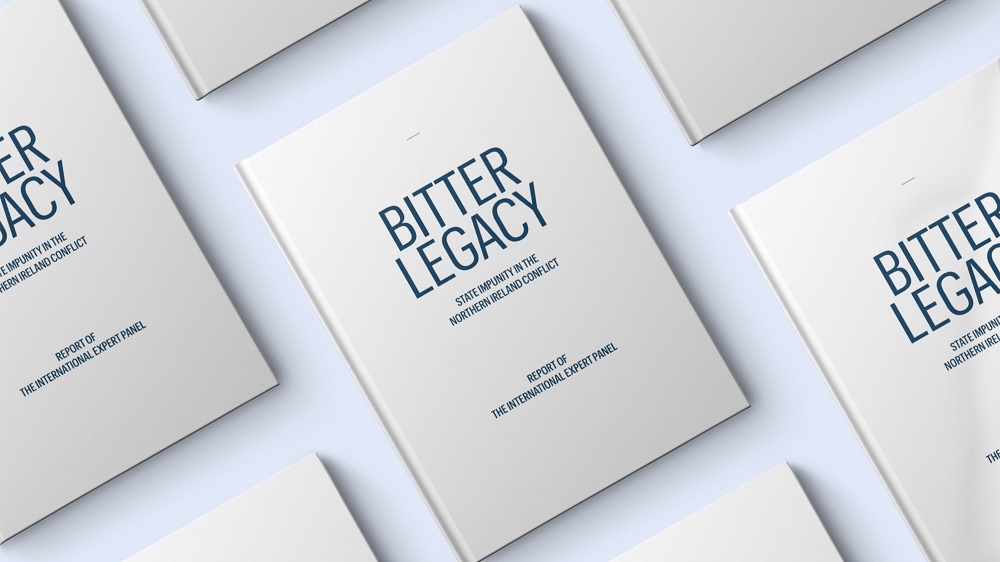The report, written by a panel of international human rights experts, has concluded that the British government operated a “widespread, systematic, and systemic” practice of impunity protecting security forces from sanction during the conflict in Northern Ireland.
Background on the International Expert Panel
Following the introduction British Government’s Legacy Bill the International Expert Panel on Impunity was convened by the Norwegian Center for Human Rights at the request of the Committee on the Administration of Justice (CAJ) and the Pat Finucane Centre (PFC).
The Panel of experts, consisting of academics, lawyers, human rights activists and former police officers, was tasked with providing an authoritative independent assessment of the extent to which there has been state impunity for human rights violations during the Northern Ireland conflict.
The Panel, who were supported by student research teams, conducted seven study visits gathering testimonies, meeting families, lawyers, NGOs and officials and examining official documentary evidence. The Panel will present the findings from their Report during three launch events in Belfast 29 April, in Dublin 30. April and London 1 May.
Key Findings
- The British government operated a widespread, systematic, and systemic practice of impunity, protecting security forces from sanction.
- The state not only engaged in collusion but also blocked proper police investigations into conflict-related killings to protect implicated security force members and agents.
- The upcoming Legacy Act, effective from May 1, bans victims’ families from future legal challenges and closes down all existing legacy mechanisms. The panel calls for its repeal, warning it will damage Britain’s worldwide reputation.
- While 30,000 loyalist and republicans were jailed for paramilitary offences during the conflict, only a handful of security force members were imprisoned despite involvement in killings and torture.
- The panel examined the impact of the policy known as “Tea and Sandwiches” interviews of soldiers accused of wrongdoing, which shielded soldiers from accountability for state violence.
- The panel carried out in-depth studies into 54 killings where state involvement was confirmed or suspected, finding that important lines of enquiry were not followed up.
- The report documents much wider evidence of security force torture and ill-treatment than has previously been reported.
- The panel dismisses state claims that only rogue security force personnel were involved in collusion, citing evidence from a number of official reports since 1998.
- The panel concludes that the duty to investigate allegations of collusion remained largely unfulfilled during the conflict.
- The report also found the Irish Government failed to carry out effective investigations, damaging victims’ right to justice.
The panel calls for the Legacy Act to be repealed, victims’ families allowed renewed access to legacy inquests and civil proceedings, and a return to the Stormont House Agreement. It urges the British and Irish governments to implement an SHA+ model covering torture and investigations in the Republic and to establish an independent international commission.
Media coverage
Guardian Newspaper
Irish Times
Irish News
PA News
The Detail investigations website
Belfast Media Group
https://belfastmedia.com/state-impunity-report
Morning Ireland radio interview
https://www.rte.ie/radio/radio1/clips/22389376/
BBC Radio Ulster
https://www.bbc.co.uk/sounds/play/m001ymwl
(clips begins from 1.09.30 – 1.20.40)
RTE news website
https://www.rte.ie/news/ireland/2024/0430/1446549-report-northern-ireland-conflict/
Irish Times
